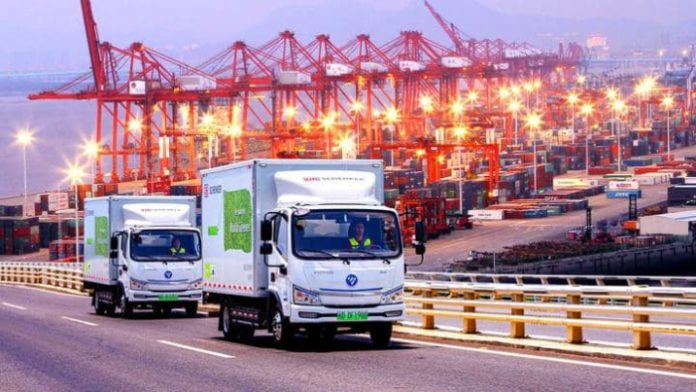
-
2,300 supply chain specialists polled on impact of holiday factory closures and COVID outbreaks expect 2023 CNY to have a different stroke of challenges
-
Visibility and data/technology are key to navigating the market, industry experts say in Container xChange webinar
-
“Ordering inventories in advance” is still the time-tested strategy to future-proof disruptions amid Chinese New Year shutdowns
Supply chain chaos is expected by 73% of 2,300 freight forwarders and supply chain professionals who responded to a Container xChange survey on the impact of COVID outbreaks and factory closures in China during this year’s Chinese New Year holiday.
The survey result surpassed the 66% who gave the same reply to a similar survey in 2022 that sought to find out how industry experts view the business impact of this year’s unusually early Chinese New Year amid a resurgent pandemic in the “world factory” and global economic uncertainty.
“We are looking at three different Chinese New Years – in 2020, 2021 and 2022. It’s not what we’ve been accustomed to in the prior years, when there was demand leading up to the Chinese New Year. There is a lot of inventory with retailers and manufacturers,” said Cathy Morrow Roberson, founder and president of Logistics Trends & Insights LLC, during a webinar organized by Container xChange on the Chinese New Year analysis and predictions.
RELATED READ: ‘Carriers’ omen’ as pre-CNY blanked sailings rise
“Inflation and fear of recession continue to impact demand. And, therefore, the spot rates have started to fall off the cliff. There are a lot of unknowns and preparing with better data, information and visibility into the supply chain is the way to navigate through these unforeseen times.”
Container xChange said 73% of supply chain professionals who expect this year’s Chinese New Year to further disrupt the shipping industry surpassed the 66% who had the same view in 2022.
The results contrast with industry reports where a lot of analysis talks about an early CNY lessening the impact of disruptions in China on the global supply chains. Out of the 73% who said they do foresee an impact, 65% were freight forwarders. The rest were supply chain professionals.
“Usually, we expect a cargo rush in January and February, but this year, the Chinese New Year is earlier. The situation will have a significant impact on domestic supply chains after January 15 until February 6, 2023,” said Mr. Sun, director/general manager of CNTRANS, in the webinar.
“In my opinion, this time is difficult for businesses. I think companies can prepare better through controlling costs, better forecasting, and efficient information flow. This is where technology can help greatly.”
RELATED READ: Pre-CNY trade volumes rates worst in 13 years
To the survey question “What impact will be the most prominent in the coming weeks?” most respondents replied there will be “an increase in port congestions and delays” and “delayed container journeys” soon after China reopens.
Container xChange, an online container logistics platform that offers an ecosystem for booking and managing of shipping containers, said most industry professionals last year feared capacity issues and higher rates after the CNY.
One respondent said increased port congestions and delays, and delayed container journeys would be the possible result as once China’s factories all ship out again, more ships would leave closer to one another for the same destinations, possibly causing backups for a short time.
“There are added and new complexities ahead coupled with the Chinese New Year. At one end, we see China coping with the COVID infections and, on the other end, we see a continued dip in demand. We cannot see Chinese New Year in isolation but in combination with all these challenges,” said Christian Roeloffs, Container xChange co-founder and CEO.
“The biggest concern is the reduced production and port capacity due to the infections in China. Also, the rates are low, capacity management is still top priority for carriers and blank sailings are prominent. Amidst this, in the coming weeks, we do foresee prolonged factory closures and bearish market conditions.”
The bearish conditions this year are a stark contrast to the bullishness of the post-CNY market in 2021.
When asked “In planning for the 2023 Chinese New Year factory closures, have you ordered inventory/placed bookings earlier this year?” 55% said “yes,” compared with 59% who replied “yes” in 2022.
Container xChange said while this year 65% of the international freight forwarders expect CNY closures to impact supply chains, only 47% have made advance plans to deal with the same. It said one possible cause of the dip could be still high inventory levels – the market being bearish, as demand continues to fall and transportation capacity supply increases.
“Further, we asked ‘Ahead of Chinese New Year factory closures, have you changed your container sourcing strategy to ensure you have boxes?’ Last year, the majority said nothing specific. This year, too, the majority responded by saying nothing specific, only this year, highlighting that there is enough supply,” Container xChange said.




